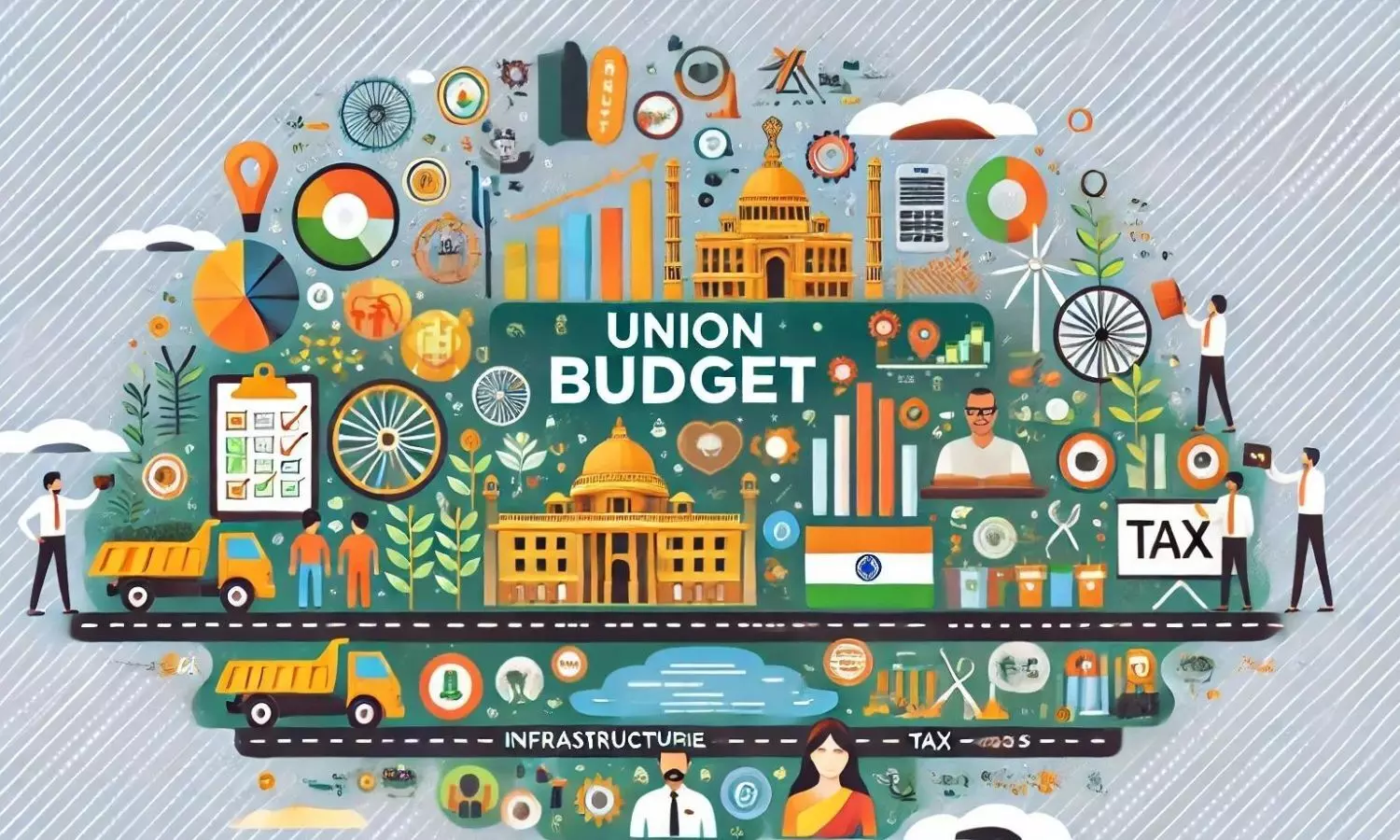Key Features of Budget 2024-2025
Discover the key features of Budget 2024-2025: Employment, Agriculture, Infrastructure, Tax Proposals, and more.

The Budget 2024-2025 presents a forward-looking agenda designed to drive India's growth and development. Emphasizing the government's commitment to the nation's socio-economic transformation, this budget lays out a comprehensive roadmap for achieving 'Viksit Bharat' (Developed India). Here are the key features and highlights of the Budget 2024-2025.
Download the official PDF of Key Highlights
While the Union Budget 2024-2025 outlines various initiatives to drive economic growth and development, more could have been done to alleviate the burden of rising prices and the double taxation effect on the middle class. Residents in cities like Delhi, where annual expenses for a middle-class family can easily reach around 5 lakh annually, continue to struggle with maintaining their standard of living. The measures in place do not sufficiently address the day-to-day financial pressures faced by the middle class, and the poor will still suffer from the escalating cost of essential goods and services. The budget falls short of providing substantial relief to these segments, which is crucial for fostering a more inclusive and balanced economic environment. - Mayank Shekhar
Budget Theme: Roadmap to 'Viksit Bharat'
The budget focuses on four major pillars:
- Mahilayen (Women): Empowerment and increased participation in the workforce.
- Garib (Poor): Alleviation of poverty through targeted schemes and support.
- Yuva (Youth): Skill development and employment opportunities.
- Annadata (Farmer): Enhancing productivity and resilience in agriculture.
Agriculture and Allied Sectors
- Vegetable Production & Supply Chain: Promotion of Farmer Producer Organizations (FPOs), cooperatives, and start-ups for efficient vegetable supply chains, including collection, storage, and marketing.
- New Varieties Release: Introduction of 109 new high-yielding and climate-resilient varieties of 32 field and horticulture crops.
- National Cooperation Policy: Systematic development of the cooperative sector.
- Atmanirbharta (Self-reliance): Focus on oilseeds such as mustard, groundnut, sesame, soybean, and sunflower.
- Transforming Agriculture Research: Comprehensive review to enhance productivity and develop climate-resilient varieties.
- Natural Farming: Target to initiate 1 crore farmers into natural farming with support for certification and branding.
- Shrimp Production & Export: NABARD will facilitate financing for shrimp farming, processing, and export.
- Digital Public Infrastructure (DPI): Implementation of DPI for coverage of farmers and their lands within three years.
Employment and Skilling
- Women in Workforce: Establishment of working women hostels and creches in collaboration with industry.
- Wage Support: One-month wage to new entrants in all formal sectors, benefiting 210 lakh youth.
- Employment Schemes: Various incentives for EPFO contributions and job creation in manufacturing.
- Loans for Education: Financial support for higher education loans, direct e-vouchers, and interest subvention.
- Skilling Programme: Skilling 20 lakh youth over five years, upgrading 1,000 Industrial Training Institutes (ITIs).
Social Justice and Human Resource Development
- Purvodaya: Development initiatives for endowment-rich states in the Eastern parts of India, including industrial corridors and infrastructure projects.
- Tribal Welfare: Pradhan Mantri Janjatiya Unnat Gram Abhiyan for the socio-economic development of tribal communities.
- Infrastructure in North East: Establishment of 100 branches of India Post Payment Bank in the region.
- Andhra Pradesh Reorganization Act: Financial support and completion of essential infrastructure projects.
Manufacturing and Services
- Industrial Parks: Development of twelve industrial parks under the National Industrial Corridor Development Programme.
- Internship Opportunities: Providing internships in top companies for 1 crore youth over five years.
- Rental Housing: Development of dormitory-type accommodations for industrial workers.
- Critical Minerals Mission: Focus on domestic production, recycling, and overseas acquisition.
Urban Development
- Stamp Duty Reduction: Encouraging states to lower stamp duties for properties purchased by women.
- Street Markets: Development of 100 weekly 'haats' or street food hubs.
- Transit-Oriented Development: Plans for 14 large cities with a population above 30 lakh.
- Water Management: Promotion of water supply, sewage treatment, and solid waste management projects.
Energy Security
- Small Modular Reactors: Development and R&D of Bharat Small Modular Reactors.
- Energy Audit: Investment grade energy audit for 60 clusters, expanding to 100 clusters.
- Nuclear Energy Initiatives: Joint ventures with the private sector for nuclear energy projects.
Infrastructure
- Long-term Loans to States: Provision of ₹1.5 lakh crore in interest-free loans.
- PMGSY Phase IV: All-weather connectivity for 25,000 rural habitations.
- Flood Managemen: Financial support for flood management projects in Assam, Sikkim, Uttarakhand, and Himachal Pradesh.
Innovation and R&D
- National Research Fund: Operationalization for basic research and prototype development.
- Space Economy: Venture capital fund for space research and innovation.
Tax Proposals
- Direct Tax Proposals: Simplified tax regime with increased standard deduction and revised tax rates for salaried employees.
- Customs Duty Adjustments: Reductions and exemptions in customs duties for various sectors to boost domestic manufacturing and exports.
The Budget 2024-2025, with its multi-faceted approach, aims to catalyze economic growth, ensure social justice, and pave the way for a resilient and developed India. The emphasis on key sectors, coupled with supportive fiscal policies, sets a solid foundation for achieving the ambitious goal of 'Viksit Bharat.'
Next Story

